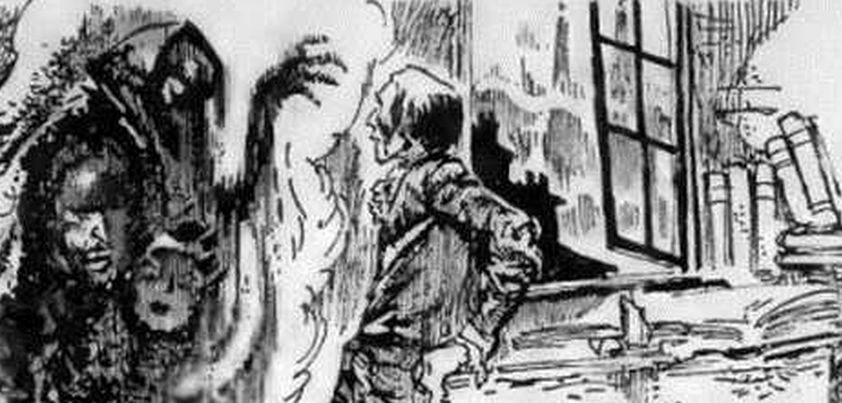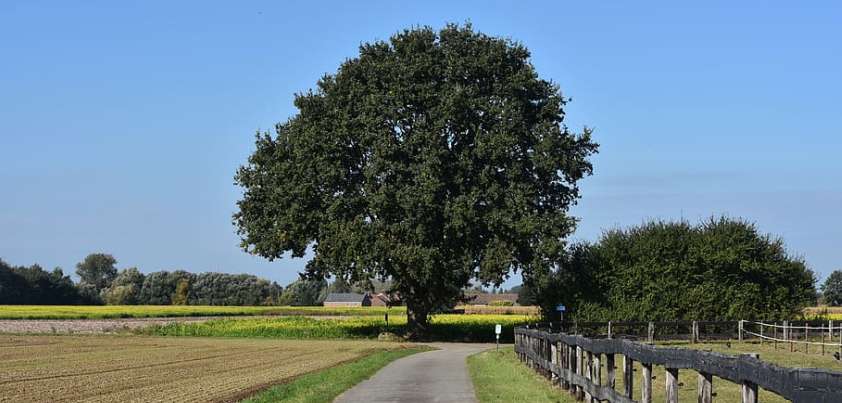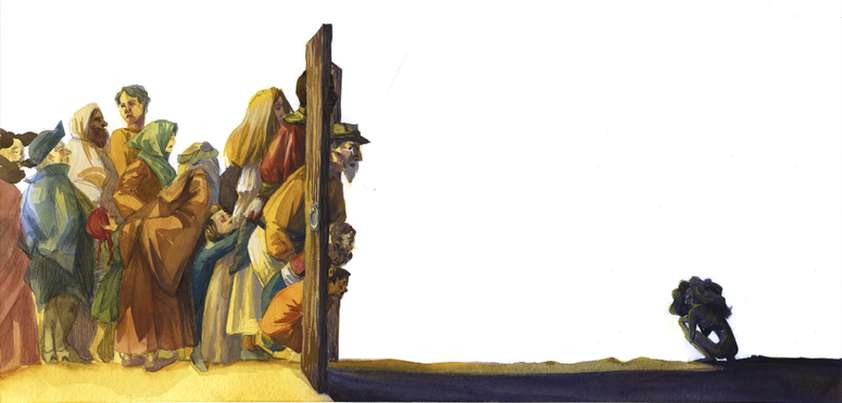 The central theme of this Ursula Le Guin story is the alienation and loneliness brought about by obsession with work and lack of companionship. A 15th century French scientist, frustrated with being unable to prove a theory he had developed, decides his work is a waste of time. He experiments with black magic and is surprised when his first spell is a success, allowing him to teleport kindred spirits from the past and future to join him. Those who come are so happy in his reality that they have no desire to return. Other themes: the occult, connection. More…
The central theme of this Ursula Le Guin story is the alienation and loneliness brought about by obsession with work and lack of companionship. A 15th century French scientist, frustrated with being unable to prove a theory he had developed, decides his work is a waste of time. He experiments with black magic and is surprised when his first spell is a success, allowing him to teleport kindred spirits from the past and future to join him. Those who come are so happy in his reality that they have no desire to return. Other themes: the occult, connection. More…
Archives
The Direction of the Road
 Only an author as creative as Ursula Le Guin could conceive a story where the protagonist is a ‘murderous’ roadside oak tree. A major theme is change. As the road develops from a bridle trail to a tarred highway, the tree laments differences in the environment (birds are fewer, and the wind’s foul) and human behavior, comparing modern passers-by to beetles always rushing about and never looking up. Another theme is perspective. The tree cannot move and has no concept of life after death. To make sense of the world, it comes up with alternative interpretations of relativity and eternity. More…
Only an author as creative as Ursula Le Guin could conceive a story where the protagonist is a ‘murderous’ roadside oak tree. A major theme is change. As the road develops from a bridle trail to a tarred highway, the tree laments differences in the environment (birds are fewer, and the wind’s foul) and human behavior, comparing modern passers-by to beetles always rushing about and never looking up. Another theme is perspective. The tree cannot move and has no concept of life after death. To make sense of the world, it comes up with alternative interpretations of relativity and eternity. More…
The Wife’s Story
 In addition to its themes of love, trust, family and perception, this Ursula Le Guin story carries two important messages. The first is that we are often so blinded by our love for someone that we fail to notice subtle hints that may indicate flaws or emerging problems in their character. The second is that there are always two sides to every interaction between sentient beings. To many humans, wolves are wild, dangerous predators to be shot on sight. To wolves, man is a feared aggressor who all too often attacks and kills them for living as nature intended. More…
In addition to its themes of love, trust, family and perception, this Ursula Le Guin story carries two important messages. The first is that we are often so blinded by our love for someone that we fail to notice subtle hints that may indicate flaws or emerging problems in their character. The second is that there are always two sides to every interaction between sentient beings. To many humans, wolves are wild, dangerous predators to be shot on sight. To wolves, man is a feared aggressor who all too often attacks and kills them for living as nature intended. More…
The Ones Who Walk Away From Omelas
 This philosophical narrative by Ursula Le Guin describes life in the seemingly utopian city of Omelas. We learn that almost everyone in the city lives in complete happiness. There is no organized system of rule, few laws, sexual freedom, no crime, no violence, and nobody living in want. Sadly, there is a blight on this “paradise”. For happiness to prevail, a single child must live in absolute misery, locked up alone in an underground cell. Themes: morality and moral compromise (the price of happiness), victimization, complicity (collective knowledge = shared responsibility), guilt, courage (the ones who “walk away”). More…
This philosophical narrative by Ursula Le Guin describes life in the seemingly utopian city of Omelas. We learn that almost everyone in the city lives in complete happiness. There is no organized system of rule, few laws, sexual freedom, no crime, no violence, and nobody living in want. Sadly, there is a blight on this “paradise”. For happiness to prevail, a single child must live in absolute misery, locked up alone in an underground cell. Themes: morality and moral compromise (the price of happiness), victimization, complicity (collective knowledge = shared responsibility), guilt, courage (the ones who “walk away”). More…